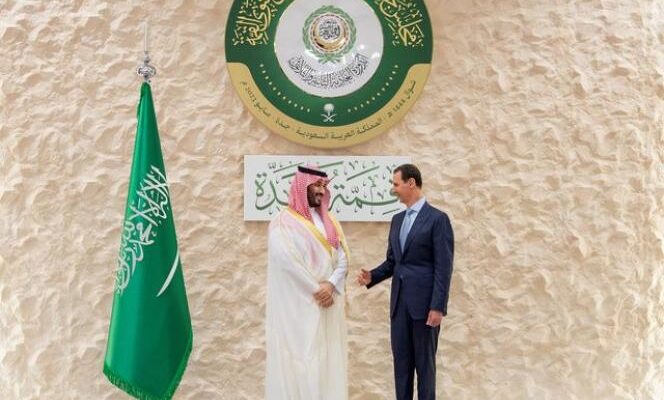Syria’s reintegration into the Arab League took Westerners by surprise. Between the harbingers of this shift, following the earthquake that devastated Turkey and the northwestern tip of Syria on February 6, and the return of the Damascus regime to the pan-Arab organization, the May 7, only three months have passed. Washington, Paris and Brussels had no choice but to bow to the determination of the Saudi Crown Prince, Mohammed Bin Salman (“MBS”), to lift the diplomatic quarantine imposed on the Syrian dictator. Western chancelleries have contented themselves with urging their Arab partners to demand pledges from Damascus in return, on the issue of political transition, prisoners or refugees.
The Amman Declaration, signed on 1er May, lists a series of measures, demanded of Mr. Al-Assad, in exchange for normalization. But “MBS” did not condition the Syrian president’s visit to the Arab summit in Jeddah on May 19 to the start of the implementation of these measures. And, without waiting either, the United Arab Emirates have, in turn, sent the Syrian dictator an invitation to the UN climate conference (COP28), which they will organize in the fall. “At least now it’s a done deal. We saw it coming for a year, but we continued the policy of the ostrich “notes a European diplomat.
“The West offered nothing, we were at an impasse. A policy of careless indifference was pursued. As long as there is no Western offer in the face of the implicit offer from the Iranians and the Russians, we will be inaudible”, laments Michel Duclos, former French ambassador to Syria. After President Barack Obama backed down in August 2013, reluctant to order strikes on Syria in retaliation for the chemical attack in Ghouta, a suburb of Damascus, the Americans withdrew from this issue.
“The ball is in the western court”
Divided, the Europeans could not weigh in the face of Russia’s obstruction at the UN and its undermining work on the ground, where it deployed forces in 2015. “Since Obama, Democrats and Republicans have applied the same simplistic policy that does not resolve the crisis: sanctions, the fight against terrorism and humanitarian aid. Saudi Arabia felt it needed a new strategy”analyzes Robert Ford, former American ambassador to Syria.
“The ball is now in the western court”believes Mr. Duclos. “Currently, in the United States as in Europe, there is no major shift. We remain on the position of the three noes: to normalization, to reconstruction and to the lifting of sanctions”, explains a European diplomat. US sanctions enforced under the Cesar Act (2019) are the main obstacle to normalization, and financial support from the Gulf to rebuild Syria, on its knees after twelve years of war and a devastating economic crisis. The Cesar law only authorizes the delivery of humanitarian aid and the setting up of stabilization projects.
You have 50.82% of this article left to read. The following is for subscribers only.
